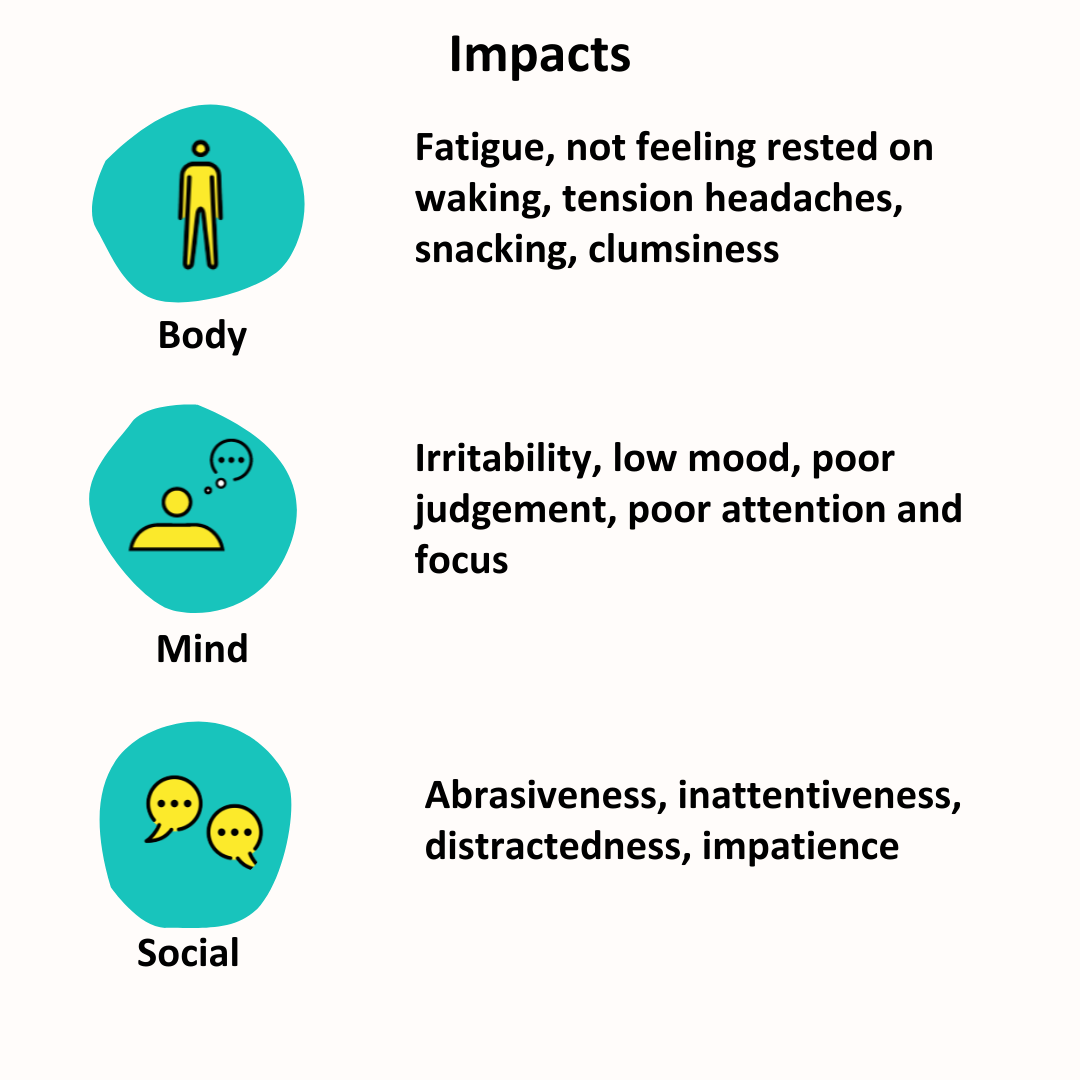Sleep is what allows our bodies to recuperate from the days’ activity. Getting enough good quality sleep is an essential element of your personal wellbeing.

Rating and Self-Assessment

If you ranked your coping as GOOD then this section should help you maintain that. If you rated it as FAIR or POOR then this section should help you improve the situation.
Impacts
The typical recommended amount of sleep for an adult is between 7 and 9 hours but it is perfectly normal to sleep slightly more or less than this.
Failing to get enough good quality sleep may potentially result in the following negative impacts on you in the short term. There are long-term impacts in all these areas, but these are beyond the scope of this document.

If you, or one of the people you are close to, notice any of these signs you may be suffering from a lack of enough good quality sleep.
What You Can Do
There are simple actions you can take that typically, if used regularly, can improve your sleep.
- Set regular hours for going to bed and waking up - be practical and allow some flex as needed for your circumstances.
- Ensure your sleeping space is quiet, dark and at a suitable temperature (typically about 18C/65F).
- Do not eat heavily or consume caffeine or alcohol less than 2 hours before you go to bed.
- Ensure you get some physical activity during the day - see the Exercise section for general guidelines. Consult national guidelines for where you live.
- Spend some time reading, chatting or reflecting on the day before settling down to sleep - think of this as a pre-sleep ‘mental wind-down’ time. Typically, 30 minutes should suffice.
- Do not use phone/tablet or PC screens less than one hour before settling down - there is no clear time limit but 1 hour (including point 4) is generally recommended.
- If you cannot sleep, get up and do something productive but low effort then return to bed.
If you see any concerning signs in someone close to you gently enquire if they are doing OK and offer them access to this guide.
If apparent sleep related problems persist or get worse and affect your quality of life, you should consult your Doctor or a professional sleep therapist. You may also consider contacting a psychologist or psycho-therapist. You may have a peer assistance network available which can help or refer you to a specialist if required.
Additional Information
-
EASA Together4Safety article on fatigue management.
-
Flight Safety Foundation 1 - online fatigue/sleep information and mitigation approaches. English language.
-
FSF online course on fatigue management for individuals. English language. Individual focus
-
AOPA - online fatigue management individual information. English language. Organisational/Individual focus.
-
UK NHS Sleep Problems - English language. Individual focus. Online guidance material
-
NHS Scotland Moddjuice Sleep Problems - UK Charity. English language. Guide and workbook for sleep improvement: individual focus
-
IFALPA fatigue management - for operators and indivduals.
- Business Jet Traveller - online genral article. English language. Individual focus
Please log in or sign up to comment.